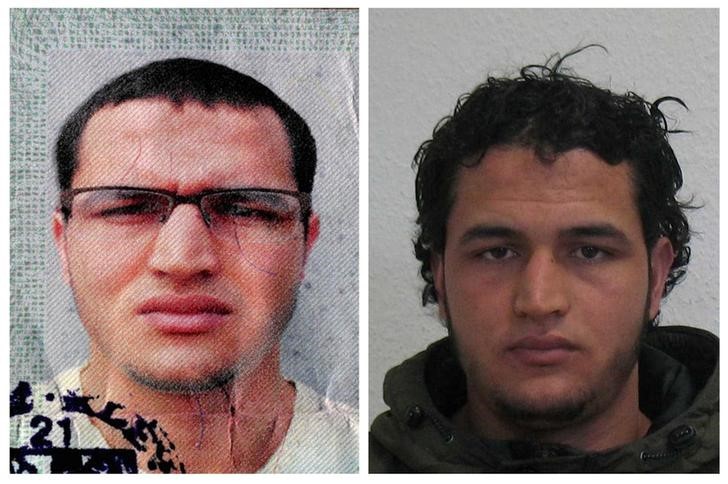BERLIN (Reuters) - German investigators searched a refugee centre and a flat in Berlin on Tuesday which they believe were homes to associates of the Tunisian man who killed 12 people in an attack in the capital before Christmas, the federal prosecutor's office said.
Anis Amri, 24, ploughed a truck through a Berlin Christmas market on Dec. 19. Islamic State claimed responsibility for the attack, calling the assailant a "soldier" of the militant group.
In the refugee home, investigators searched the accommodation of a 26-year-old Tunisian who they believe knew Amri since at least late 2015 and who was in contact with him close to the date of the attack.
"Therefore, there is the suspicion that the suspect knew of the attack plans and possibly helped Anis Amri," the prosecutor's office said in a statement.
Investigators believe the Berlin apartment they raided was home to a former flatmate of Amri's, who they suspect was also in contact with him shortly before the attack. The search was aimed at gleaning more information about Amri's behaviour before and after the attack, the prosecutor's office said.
The office added it would give an update on the investigation during Wednesday afternoon.
Separately, the Sueddeutsche Zeitung reported that German investigators identified Amri as a threat in February last year but decided it was unlikely he would carry out an attack.
The German authorities had determined Amri posed a threat after receiving intelligence showing that in early February he had been in contact with suspected members of Islamic State and offered himself as a suicide bomber, the Sueddeutsche reported.
Officials at the German Interior Ministry were not immediately available to comment on the report.
Amri, whom Italian police shot dead in Milan on Dec. 23, had wanted to acquire weapons for an attack in Germany and sought accomplices, the Sueddeutsche said in a joint report with German broadcasters NDR and WDR, citing security documents.
However, German officials who subsequently met to decide whether to deport Amri, determined he posed no acute threat that could be presented in court.
Amri's attack in Berlin has prompted German lawmakers to call for tougher security measures. In a New Year's address to the nation, Chancellor Angela Merkel said Islamist terrorism is the biggest test facing Germany.
